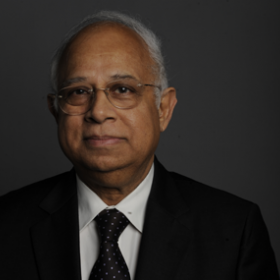
Pakistan and the Afghanistan Intelligence Leak
Writing for The News, Ikram Sehgal argues that the portrayal of Pakistan in the recently leaked "Afghan War Diary" is unfair and Pakistan needs a focused media strategy to counter such claims.
"Independent analysts warned that most of the intelligence material was of questionable value coming from sources inimical to Pakistan," Sehgal writes in the Pakistani daily, suggesting that much of the information was coming from Afghan and Indian intelligence sources. He further argues that the leaked documents paint a picture of Pakistani intelligence services that is no longer accurate, pointing to Pakistan's own struggle against extremism. "There is a radical difference in the ISI that existed during the Afghan war and the ISI that exists today," he writes. "Clandestine organization like the ISI, CIA, MI-5, KGB, etc necessarily operate in grey areas. But that any would work against the best interests of the state is ridiculous."
Sehgal further argues that the media attention has unfairly focused on Pakistan despite incriminating evidence against other actors in Afghanistan. "The documents leaked by WikiLeaks include details of war crimes by the U.S. and coalition forces and the involvement of Afghan President Hamid Karzai’s family in drug smuggling," he suggests. "Yet these got only cursory media attention."
He is also disappointed by the fractured response in the United States. He applauds "U.S. lawmakers who have taken into account the tremendous sacrifices rendered by Pakistani security forces." But he lambasts pundits such as Richard Haass and Fareed Zakaria for their criticism of Pakistan, which Sehgal claims is based on politics and not policy.
"Perception is nine-tenths of media law," writes Sehgal, arguing for a concerted public relations effort to counter negative views of Pakistan.
"As a coherent platform for our national security strategy, our present media policy is quite impractical and is tilted inwards, rather than being focused externally," he concludes. "The stakes are high, a comprehensive media strategy must incorporate the new ground realities and must project Pakistan abroad by coalescing and force-multiplying the talent and potential of the private sector. The attacks on the army and the ISI have grave national repercussions for us, and they will happen again and again unless we do something."

